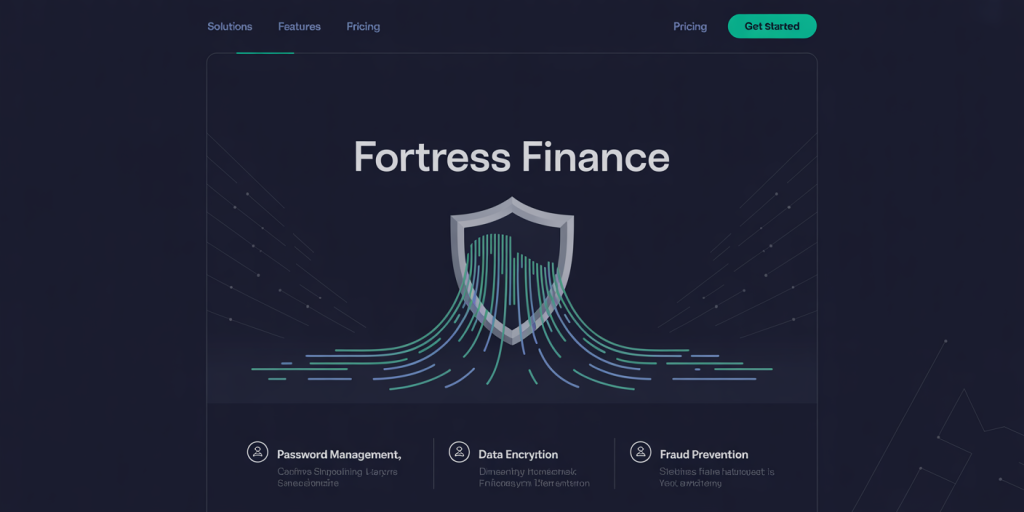Managing personal finances and uncovering the best deals can be time-consuming and overwhelming. Thankfully, technology offers tools that simplify budgeting, saving, and spending wisely. Chrome extensions, in particular, provide seamless integration into your browsing experience, making it easier to track expenses, find discounts, and optimize financial decisions without switching platforms. This article explores the best Chrome extensions designed to empower users in personal finance management and deal hunting, backed by practical examples and data-driven insights.

Enhancing Money Management with Chrome Extensions
Smart money management begins with understanding where your money goes and how to optimize your spending habits. Chrome extensions tailored to personal finance provide instant access to budgeting, expense tracking, and financial goal-setting tools.
One popular extension is YNAB (You Need A Budget), which connects to your bank accounts and credit cards to help you visualize your cash flow and create realistic budgets. For instance, a user involved in frequent travel realized she was overspending on dining out during business trips after using YNAB’s real-time updates and alerts. This insight enabled her to cut unnecessary costs while reallocating funds towards savings.
Another exemplary tool is PocketGuard, which helps users avoid overspending by displaying how much money is “safe” to spend after accounting for bills, goals, and savings. Studies show that 55% of Americans struggle with overspending (Credello, 2023), and PocketGuard addresses this by providing clear, actionable financial visibility directly in the browser, ideal for impulse buyers who shop online regularly.
These extensions revolutionize budgeting by automating tracking, offering categorization, and sending notifications, thus reducing the error-prone manual entries that often frustrate personal finance enthusiasts.
Deal Hunting Made Effortless with Price Comparison Tools
Finding the best deals online can save consumers significant money, but manually comparing prices on multiple websites is tedious. Chrome extensions specializing in price comparisons streamline this process by instantly showing the lowest prices and coupons during online shopping sessions.

Honey is one of the most widely used deal-finder extensions, boasting over 17 million users worldwide. Honey automatically scans thousands of coupon codes and applies the best one at checkout, helping users save an average of 17% per purchase (Honey Analytics, 2023). A notable example involved a family purchasing school supplies online: Honey applied a 20% cashback coupon unnoticed by the retailer’s website, saving over $50 on a $250 purchase.
Similar tools like CamelCamelCamel complement this by tracking Amazon price history, alerting users when prices drop to historically low levels. For an avid Amazon shopper, this saved approximately 12% annually as they timed purchases around price dips documented by the extension.
Table 1 outlines a comparison of popular deal-finder extensions highlighting unique features and user benefits:
| Extension | Coupon Auto-Apply | Price History Tracking | Cashback Offers | User Ratings (out of 5) |
|---|---|---|---|---|
| Honey | Yes | No | Yes | 4.7 |
| CamelCamelCamel | No | Yes | No | 4.5 |
| Rakuten | Yes | No | Yes | 4.4 |
| RetailMeNot | Yes | No | Limited | 4.3 |
These tools reduce friction in deal hunting, ultimately improving the overall shopping experience while maximizing savings.
Investment Monitoring and Portfolio Tracking Extensions
Effective personal finance management extends beyond budgeting and deals to include investment oversight. Several Chrome extensions enable users to monitor their portfolios, track stock market trends, and make informed investment decisions without subscribing to costly financial services.
Personal Capital is a top-rated extension that aggregates information from brokerage accounts, retirement funds, and bank accounts to provide consolidated net worth reports and asset allocation recommendations. For example, a millennial investor used Personal Capital to diversify their portfolio after discovering a heavy concentration in tech stocks, which mitigated risk during a market correction in early 2023.
On the other hand, StockTicker displays real-time stock prices and customizable watchlists directly in the browser toolbar, allowing users to keep tabs on market movements during their workday without opening separate financial platforms. According to FinanceBuzz (2023), timely stock tracking contributes to an average portfolio improvement of 1.5% annually, an advantage for active investors who respond quickly to market changes.
That said, these extensions differ in functionality and complexity. A comparative table below clarifies their suitability depending on investment style:
| Extension | Real-Time Quotes | Portfolio Aggregation | Investment Advice | Best For |
|---|---|---|---|---|
| Personal Capital | No | Yes | Yes | Long-term investors |
| StockTicker | Yes | No | No | Active traders |
| SigFig | No | Yes | Yes | Beginners |
| Yahoo Finance | Yes | Limited | Limited | Casual monitoring |
Investment-related extensions empower users, both novice and experienced, to maintain control of their financial growth by providing accessible tools that mitigate risks and improve decision-making precision.
Coupon and Cashback Extensions That Maximize Savings
Apart from automated deal-finders and investment tools, cashback and coupon-centered extensions drastically amplify the value of everyday purchases. These extensions reward users with a percentage of their spendings, providing an easy way to accumulate savings on regular expenses.
For instance, Rakuten (formerly Ebates) offers up to 40% cashback at over 2,500 stores, including popular brands like Walmart and Macy’s. Rakuten’s seamless integration means users activate cashback offers automatically or via a popup reminder. A survey by Rakuten (2023) states that active users saved an average of $120 annually without extra effort beyond normal shopping.
Additionally, Capital One Shopping combines coupon searches with a price comparison engine. It instantly notifies users if a competing retailer offers a better price or relevant coupons. One user reported how this feature helped avoid overpaying for electronics during Black Friday sales by alerting to a more affordable retailer.
Cashback and coupon extensions serve as passive saving mechanisms—users don’t have to adjust shopping behavior drastically to benefit, which is essential given that 62% of consumers claim they are hesitant to change preferred shopping sites (Statista, 2023).
Security and Privacy Considerations for Finance Extensions
While Chrome extensions offer undeniable benefits, they also pose data privacy and security risks, particularly those linked to sensitive financial information. Users must approach installing personal finance and deal-related extensions with due diligence.

Reputable extensions like LastPass and Bitwarden, which offer password management integrated with two-factor authentication, safeguard log-in credentials for banking and shopping accounts. These tools reduce risks of unauthorized access that could lead to financial loss or identity theft. According to a 2023 report by Cybersecurity Ventures, credential theft accounts for over 80% of financial fraud cases.
Moreover, users should scrutinize permissions requested by extensions. Extensions granting access to all browsing data might inadvertently expose sensitive details. Reading user reviews, referring to privacy policies, and installing updates promptly are critical steps toward minimizing risks.
For instance, a case in 2022 involved a lesser-known finance tracker that was removed from the Chrome Web Store after it was discovered to be capturing more information than disclosed. Users impacted experienced compromised accounts due to this data breach, highlighting the importance of sticking with trusted providers.
The Future of Personal Finance and Deal Extensions
The landscape of Chrome extensions for personal finance and deals is evolving rapidly. Artificial intelligence (AI) and machine learning are being integrated into tools to provide hyper-personalized financial guidance based on spending behavior, upcoming bills, and market trends. For example, predictive analytics can anticipate large expenses and suggest tailored saving tips, making budgeting more proactive rather than reactive.
Emerging extensions will likely incorporate voice-enabled commands and instant decision-making assistants that interact with multiple accounts simultaneously. Such advancements may enable users to execute trades, adjust budgets, and redeem coupons hands-free, enhancing accessibility for users with varied needs.
Furthermore, blockchain technology and decentralized finance (DeFi) may also influence future extensions by offering greater security and transparency. Lending and borrowing directly through browser-based platforms without intermediaries could become mainstream in the coming decade.
Finally, the shift toward integrated ecosystems—combining budgeting, investing, cashback rewards, and deal hunting in one interface—will minimize app fatigue. This integrated approach not only improves user engagement but also drives more efficient money management, based on comprehensive financial health metrics.

Deixe um comentário